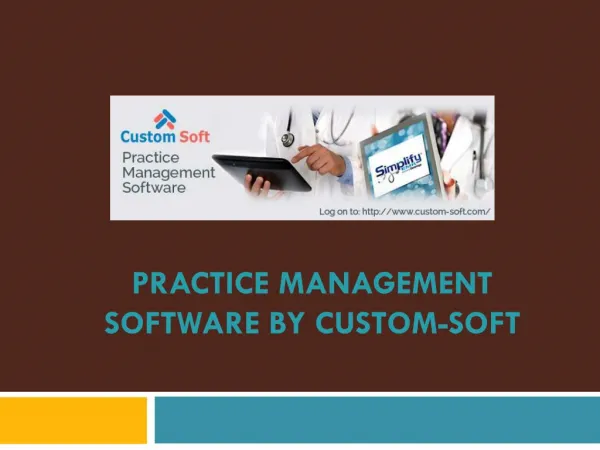Operate More Efficiently, Instead of Harder: The Advantages of Healthcare Practice Management Systems in Medical Care
In the current rapidly evolving healthcare environment, efficiency and structure are vital for success. As providers face growing pressure to deliver high-quality care while managing administrative responsibilities, the need for new solutions becomes apparent. A notable solution is practice management software, which has risen as a game changer for healthcare facilities of all sizes. By streamlining operations and enhancing communication, this technology not only helps practices run more smoothly but also allows healthcare professionals to concentrate on what is important: patient care.
The benefits of this software extend far beyond simple appointment management and billing. With features designed to optimize workflow, increase data accuracy, and enhance patient engagement, these systems empower healthcare providers to be more efficient, not more laborious. As we explore further into the many advantages that practice management software brings to healthcare, it is evident that embracing this technology is critical for any practice looking to succeed in a competitive landscape.
Effectiveness Benefits with Practice Management Software
Clinical management software optimizes administrative tasks, enabling healthcare providers to focus more on patient care rather than paperwork. By streamlining scheduling, billing, and patient communications, these systems reduce the time staff spend on routine tasks. This automation produces significant time savings, enabling healthcare professionals to allocate their efforts to more essential functions, such as personal patient interaction and clinical decision-making.
Additionally, healthcare management software boosts data accuracy and minimizes errors associated with manual entry. Electronic health records and billing processes supported by these systems decrease the likelihood of misplaced information and faulty billing claims. This increase in data quality not just improves operational efficiency but also contributes to better patient outcomes, as correct records lead to more educated clinical decisions and streamlined care coordination.

Moreover, the centralized nature of clinical management software enables healthcare teams with simple access to patient information, schedules, and billing records. This availability fosters enhanced communication among staff and facilitates quicker decision-making processes. As information flows seamlessly across various departments, healthcare providers can respond more effectively to patient needs, ultimately improving the overall efficiency of practice operations.
Elevated Patient Engagement and Contentment
Medical operational systems greatly improves client involvement by facilitating connectivity channels with medical practitioners and patients. With capabilities including secure communication, meeting alerts, and telehealth services, consumers can readily connect with their healthcare practitioners. This availability not only inspires patients to contact with inquiries or issues but additionally guarantees they are more active in their own care.
Additionally, the accessible interfaces of modern medical operational platforms allow clients to retrieve their clinical files, examination outcomes, and treatment regimens at their leisure. This empowerment fosters a perception of control over their wellness journey, leading to increased levels of patient satisfaction. When patients perceive informed and engaged, they are more apt to adhere to care regimens and go to subsequent meetings, ultimately leading to better health outcomes.
Furthermore, by collecting input through surveys and satisfaction ratings, healthcare management software allows healthcare professionals to constantly enhance their offerings. Analyzing this information assists providers discover areas of development and adjust their strategies to satisfy client demands more successfully. As providers evolve and improve their offerings based on patient input, overall satisfaction increases, creating a more beneficial clinical experience.
Information Management and Compliance Benefits
Efficient data management is essential in healthcare, and practice management software provides a cohesive platform for structuring patient information. This software enables healthcare providers to keep and access data effectively, reducing the risks associated with misplaced records. With streamlined access to patient histories, treatment plans, and billing information, providers can concentrate more on patient care rather than administrative tasks, ultimately improving the overall patient experience.
Compliance with regulatory requirements is yet another vital aspect of healthcare that practice management software tackles. Such software typically includes features designed to ensure adherence to standards such as HIPAA, which protects patient privacy and data security. Automated medicloudmed.ch and reminders help practices stay updated about compliance changes, allowing them to make necessary adjustments right away. This mitigates the potential for significant fines and legal issues, fostering a culture of accountability and safety within the practice.
Furthermore, the software often includes robust reporting capabilities, enabling practices to analyze data and ensure compliance with different health regulations. By generating detailed reports on patient outcomes, billing practices, and operational efficiency, healthcare providers can recognize areas needing improvement. This forward-thinking approach not only strengthens compliance efforts but also aids in making informed decisions that enhance service quality, ultimately enhancing both the practice and the patients they serve.